Preschool Classes
Weekly Music Classes For LA & Orange County Preschools
The Music Rhapsody preschool program offers your school much more than just a singer with a guitar. Music Rhapsody’s trained teachers will instruct and interact with the children using methodologies which entertain while educating. The concepts taught by Music Rhapsody through fun, engaging activities have a long-term impact on musical and academic learning.
Developed by founder Lynn Kleiner, Music Rhapsody’s award-winning music education program is based on Orff Schulwerk, a creative teaching philosophy.
The learning atmosphere is joyful and game-like, full of singing, dancing, and instrument playing, with stories, props, puppets, and imagination!
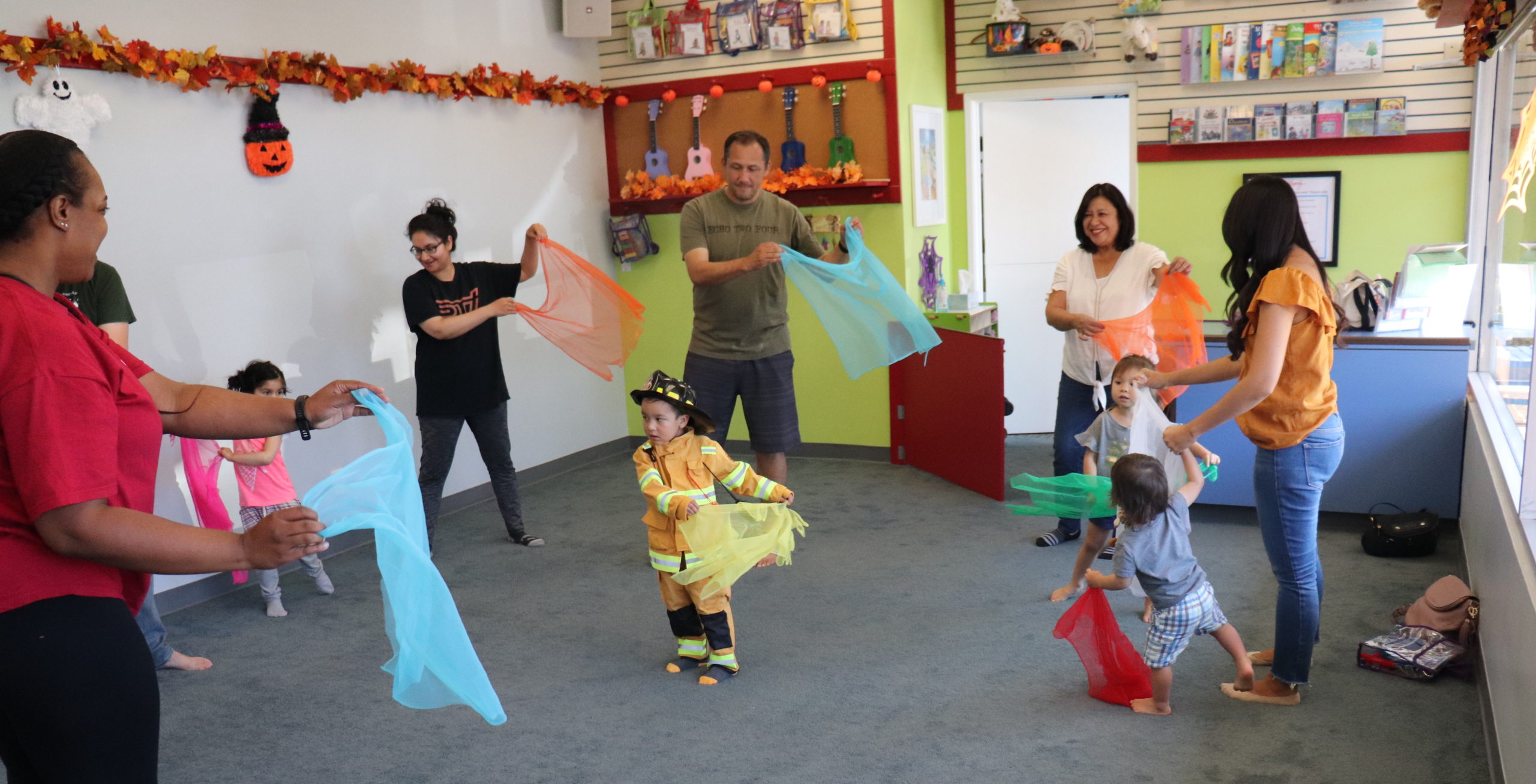
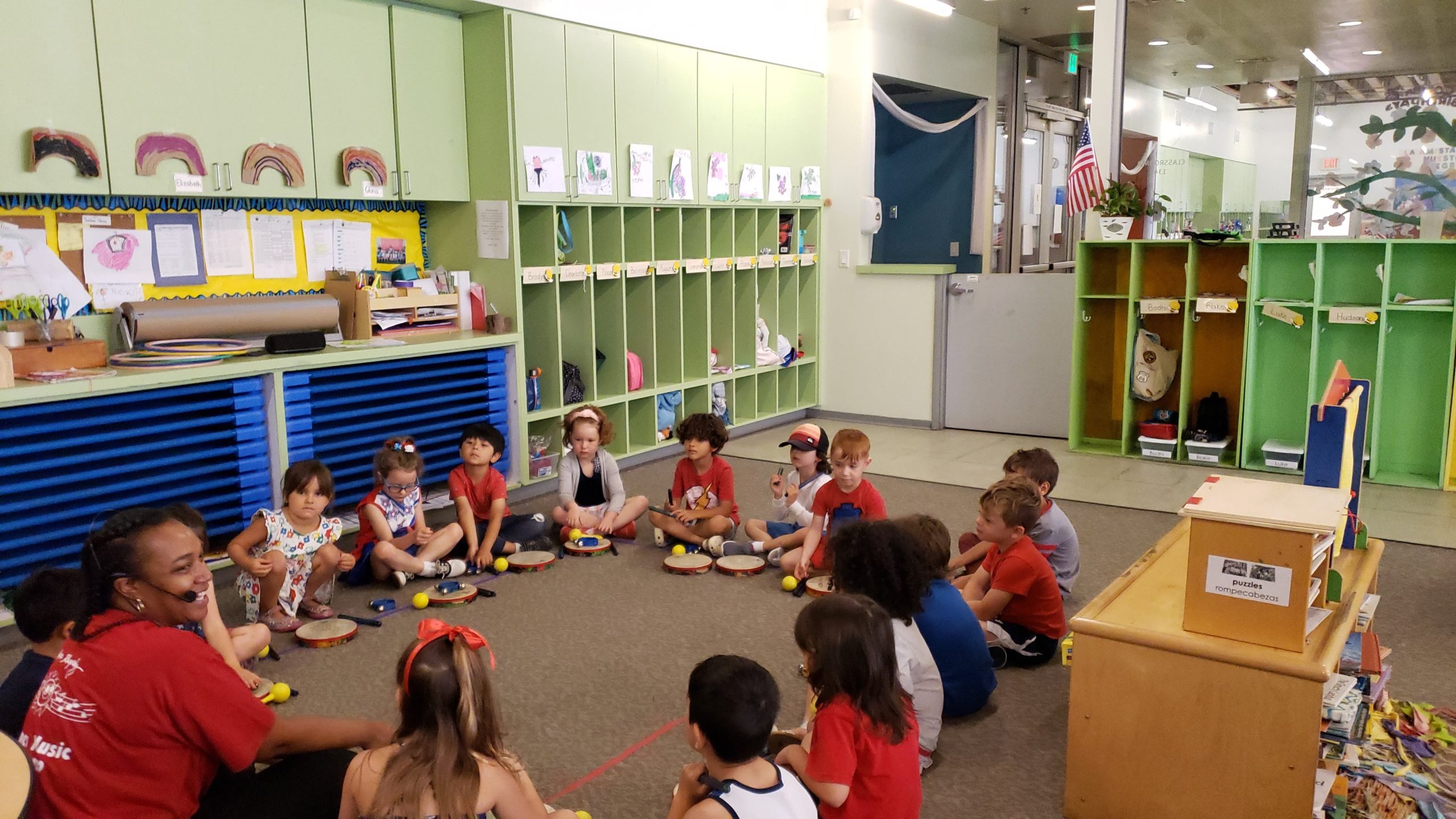
Why Music?
- Music promotes learning!
- Music, at a very young age, dramatically impacts a child’s language development.
- Movement activities and timing games develop motor skills, coordination, body awareness, and spatial concepts.
- Listening, comparing, and responding to various types of music develops thinking skills, while the songs, rhymes, and finger plays strengthen memory.
- Repeating patterns and counting beats develop math and literacy skills.
- Participating in group dances and musical games encourages social skills.

Beat/Rhythm
Children practice matching an external beat using a single motion per beat. We often practice playing the beat on xylophones or drums. Rhythm to words is not played on the instruments until the student has mastered the beat.
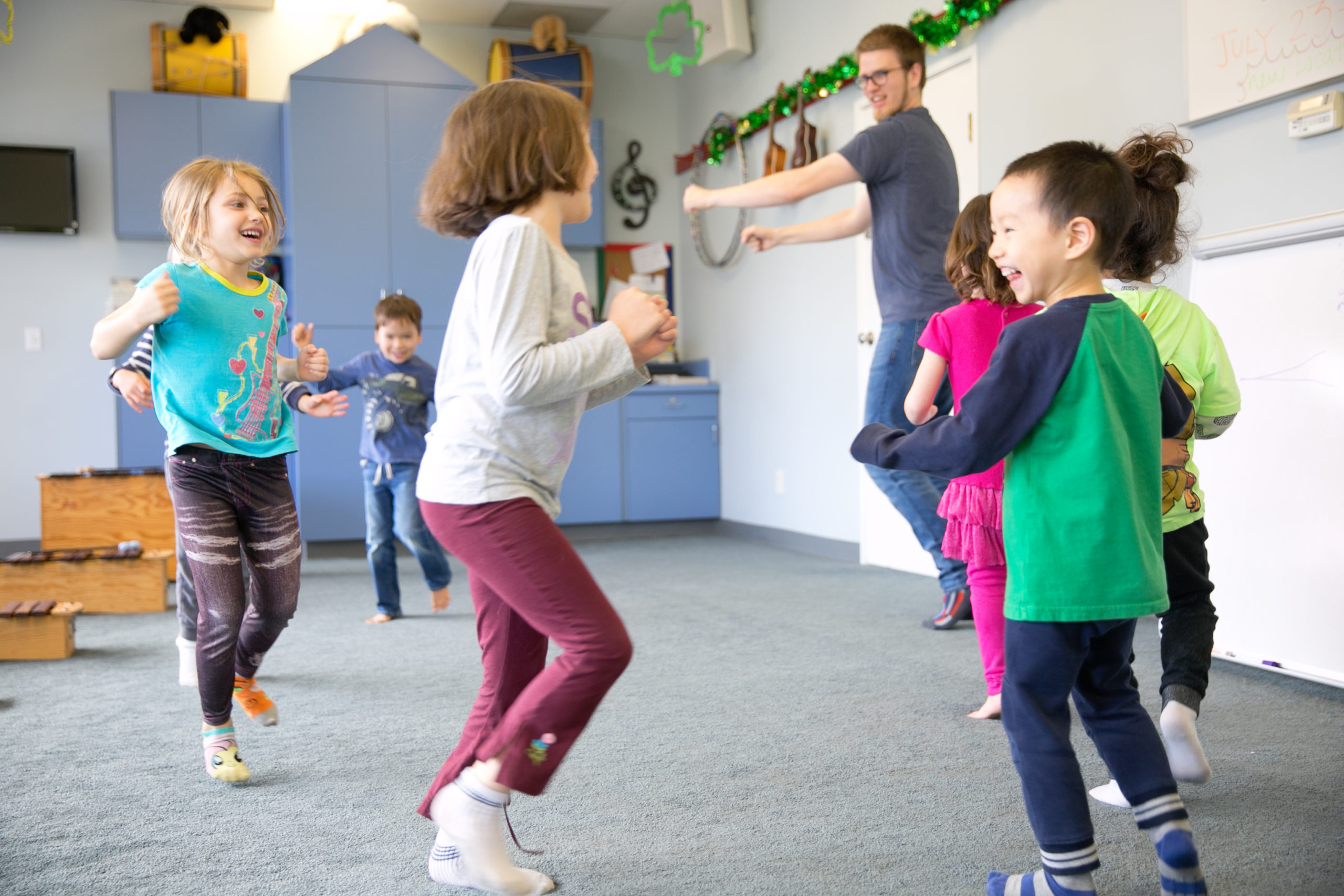
Movement
Creative movement is used with a poem, rhyme, or story. Imagery is used to create situations where the children move “like” something or as if they “were” something, such as a cat, tree, etc. Some beginner folk dances are taught as well as activities to move together to a common beat.
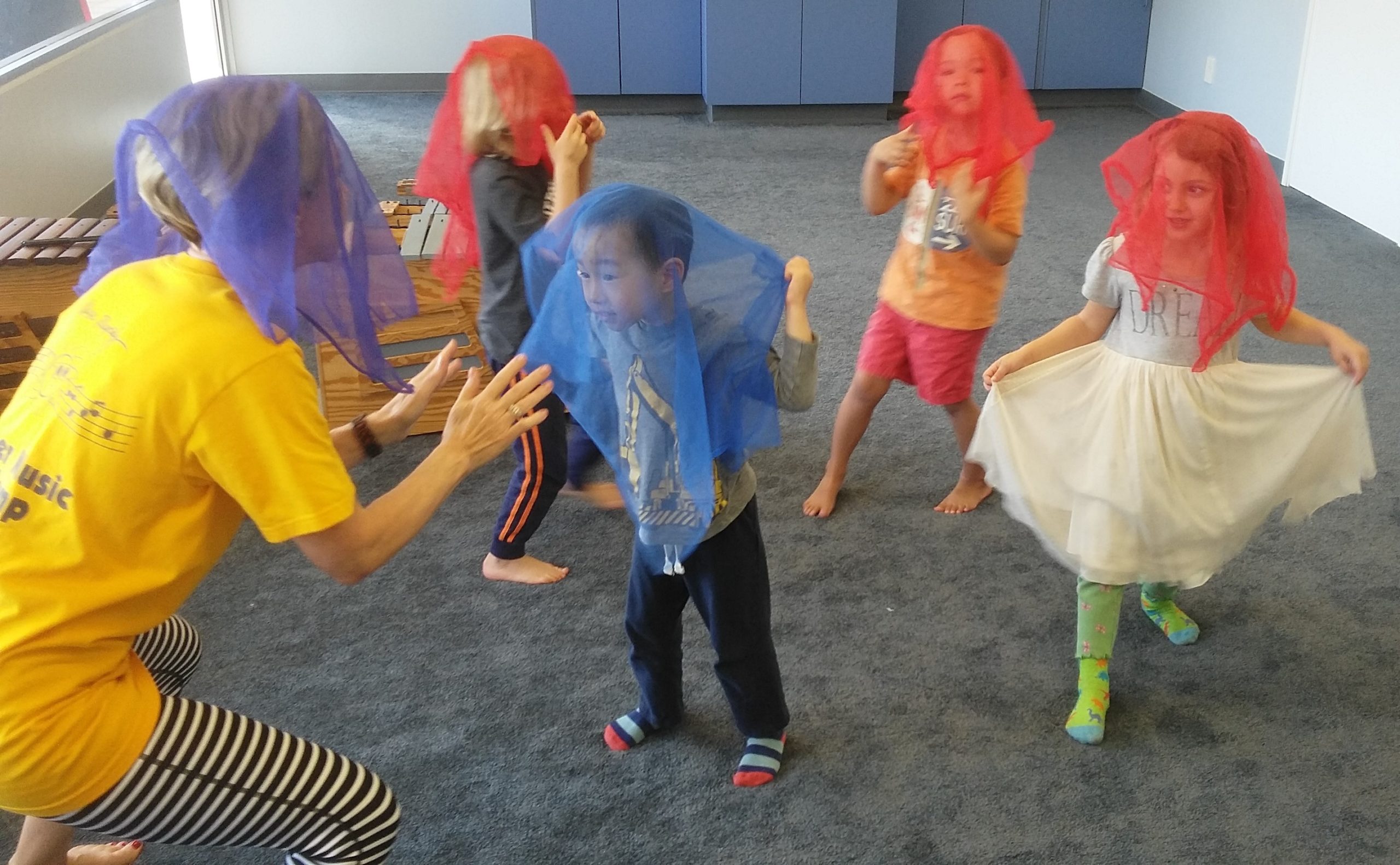
Listening
Experience trains the ear to be more sensitive and hear with a high level of discrimination, making music more enjoyable. A variety of styles and composers are introduced.
Classical music is taught through “active” listening, which includes movement, props (scarves, puppets, stretchy bands and parachutes) and instruments.

Reading Music
Just as children learn to speak before they read, the preschool student experiences and learns to make music before learning to read music. Music reading is not taught in the preschool classes. Some simple visuals are presented in the 4 and 5 year classes which represent beats and sounds on the beat in preparation for music notation.
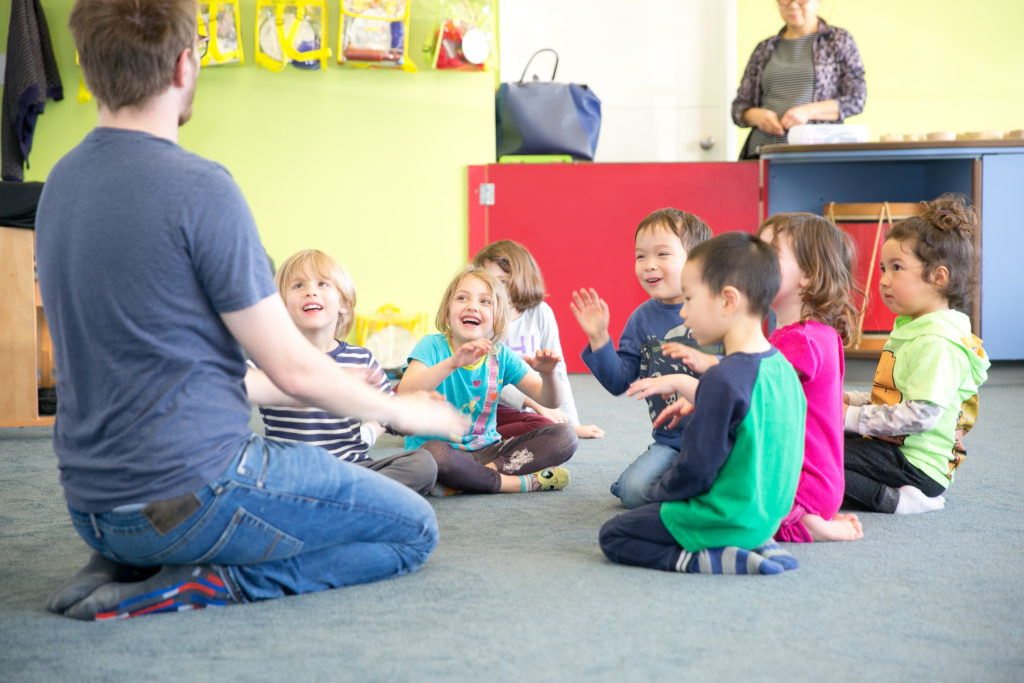
Singing
Children learn a variety of songs: animal songs, seasonal songs, singing games, children’s folk songs, songs for holidays, et cetera. The children become aware of different vocal qualities in the lessons such as high-low, head and chest voice, and singing, talking, and whisper voice.
Many opportunities for solo singing are presented in the lessons. This may be as simple as a singing game where a child responds with a two-note, one-word response. This gives the child an opportunity to hear his or her own voice and the teacher a chance to evaluate and assist.
Pitch-matching for singing in tune is an important goal of the Music Rhapsody program. Children are encouraged to make up their own verses to songs and to make up their own melodies.
Instruments
Students orchestrate songs, rhymes, poetry, and stories using various unpitched percussion. The children learn the names and categories of these instruments (woods: tone blocks and rhythm sticks; metals: triangles and finger cymbals; skins: hand drums and tambourines; and shakers: maracas, jingle bells and shaker eggs).
The instruments are used to reinforce the music concepts taught, such as fast and slow, high and low, long and short. They are also used to teach timing and musicianship. Free exploration and creativity is offered. Older students and more experienced classes also use the Orff instruments: xylophones, metallophones, and glockenspiels.
What The Program Includes
Schools which have made the commitment to Music Rhapsody’s music education curriculum for their school year, seeing all staff and students on a weekly basis, receive many extra benefits. Weekly classes include:
- A minimum of one concert per school year and/or parent visitation day if desired.
- An additional Music Rhapsody teacher to help with rehearsals and your school’s concert. Additional instruments so all children can play together at the concert…
- A printed program for the concert including the educational points of each song/activity.
- A Parent Education Class or Open House presentation
- Teacher resources including poems, rhymes, stories, songs or dances that will assist the school’s staff in planning a specific theme or event. Our thirty-plus years of experience can accommodate requests for specific themes and events. We are continuously adding to our songs, dances, puppets, felts, props and instrumentarium.
- Brochures for parents and visitors to explain the music program and its benefits.
- Class sets of Percussion instruments and CDs kept at the school.
- The school will be given the CDs, Kids Make Music, Babies Make Music Too, and Kids Can Listen, Kids Can Move CD. Additional CDs are added in the summer program.
- Teacher In-service Workshop for the school’s staff so new teachers or teachers new to the Music Rhapsody program understand the music curriculum and how they can make the program more successful.
- Articles for your school newsletter. A monthly article is available about the benefits of music education and answers to frequently asked questions by parents.
- Music Resources that are recommended for students for home music making are available to the school once a year for fundraising.
- Your Music Rhapsody music teacher receives ongoing training. Music Rhapsody offers 3 in-service training workshops for our staff each school year and an annual 6-day intensive summer training course. Music Rhapsody pays for membership to Orange County and LA Orff chapters, offering 8 full-day trainings during the school year.
